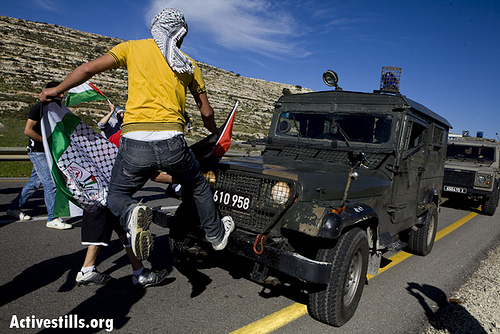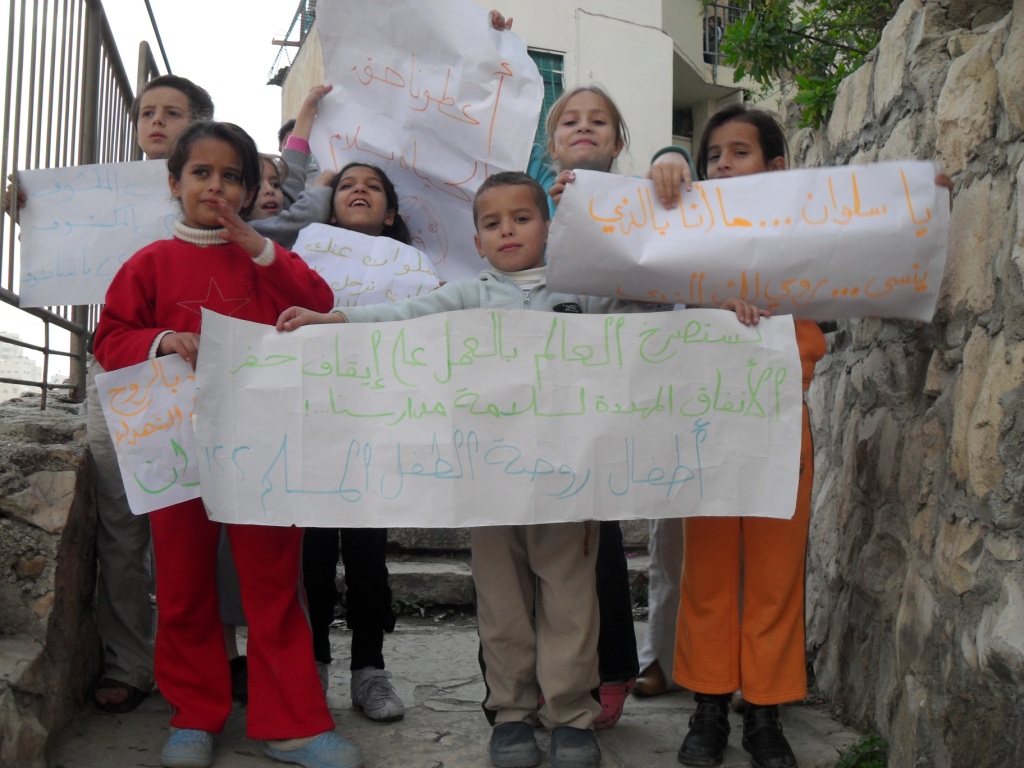Category: Press Releases
-

Twenty demonstrators injured in Nabbi Saleh
Popular Struggle Coordination Committee 8 January 2010 For immediate release: As part of a recent surge in popular protest in the West Bank, about 300 demonstrators occupied and blocked the main road in near the Halamish settlement for over two hours. The demonstrators, twenty of which were injured by rubber-coated bullets, protested recent land grabs.…
-
Abdallah Abu Rahmah: No army, no prison and no wall can stop us
Free Abdallah Abu Rahmah January 6, 2010 To all our friends, I mark the beginning of the new decade imprisoned in a military detention camp. Nevertheless, from within the occupation′s holding cell I meet the New Year with determination and hope. I know that Israel’s military campaign to imprison the leadership of the Palestinian popular…
-

Settler tunnel causes another road collapse in Silwan, East Jerusalem
3 January 2010 For immediate release: At around 4pm, on Saturday 2 January 2010 part of a main road in the Palestinian neighbourhood of Silwan collapsed. The section of road runs above tunneling work carried out by the Elad settler organisation. Despite the road collapsing in the mid-afternoon, it was not until 8pm that Israeli…
